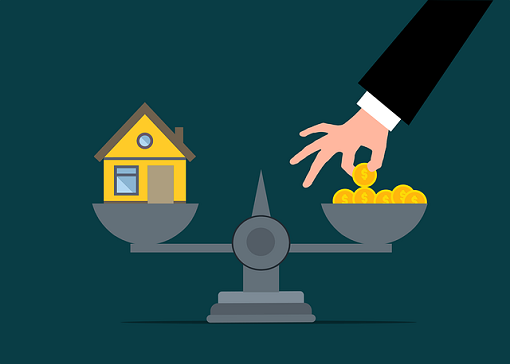Understanding the Impact of Soaring Mortgage Rates and Inflation on Homeowners
Introduction
Purchasing a home is a significant milestone for many individuals and families. However, the dream of homeownership comes with financial responsibilities, particularly the mortgage. In recent times, homeowners have been facing the challenges of soaring mortgage rates and the impact of inflation on their financial well-being. In this article, we will explore the factors behind rising mortgage rates, the link between mortgage rates and inflation, and provide tips for homeowners to manage these changes effectively.
The Impact of Soaring Mortgage Rates
Mortgage rates play a crucial role in determining the affordability of homes for buyers. When mortgage rates rise, the cost of borrowing increases, making it more challenging for prospective homeowners to enter the market. Higher mortgage rates can limit housing options, reduce purchasing power, and increase the overall cost of homeownership. Moreover, existing homeowners with adjustable-rate mortgages may face significant increases in their monthly payments, potentially straining their finances.
Understanding the Factors behind Rising Mortgage Rates
Several factors contribute to the fluctuations in mortgage rates. Economic indicators such as employment rates, GDP growth, and inflation influence the overall interest rate environment. The decisions of central banks and their monetary policies also play a significant role in shaping mortgage rates. When the economy is performing well, central banks may raise interest rates to control inflation, which in turn affects mortgage rates. Additionally, global economic conditions, market demand, and investor sentiment can impact mortgage rates as well.
Exploring the Link between Mortgage Rates and Inflation
Inflation is a critical factor affecting mortgage rates. As prices for goods and services rise, the purchasing power of money decreases. Central banks often respond to inflationary pressures by raising interest rates to curb spending and stabilize prices. Higher mortgage rates act as a deterrent to borrowing, which helps slow down the economy and mitigate inflation. Homeowners need to understand this correlation as it directly impacts their mortgage payments and affordability.
The Role of Central Banks in Mortgage Rate Fluctuations
Central banks, such as the Federal Reserve in the United States or the Bank of England in the UK, have significant influence over mortgage rates. These institutions use various tools to manage the money supply and control interest rates. By adjusting the benchmark interest rate, central banks can indirectly affect mortgage rates. Homeowners should closely monitor the decisions and communications of central banks to anticipate potential changes in mortgage rates.
Tips for Homeowners to Manage High Mortgage Rates
- Evaluate Refinancing Options: Consider refinancing your mortgage to take advantage of lower rates or secure a fixed-rate mortgage to protect against future rate increases.
- Create a Budget: Review your monthly expenses and prioritize your mortgage payments. Creating a realistic budget can help you manage your finances effectively.
- Explore Assistance Programs: Investigate government programs or local initiatives that provide support for homeowners facing financial difficulties due to high mortgage rates.
- Consider Downsizing or Renting: If your current mortgage becomes unaffordable, explore downsizing to a smaller home or temporarily transitioning to renting until mortgage rates become more favourable.
- Seek Professional Financial Advice: Consult with a financial advisor to assess your options and develop a personalized plan to navigate the challenges of high mortgage rates.
The Importance of Financial Planning in a Changing Rate Environment
In a changing rate environment, financial planning becomes crucial. Homeowners should regularly review their financial goals, assess the impact of rising mortgage rates, and make necessary adjustments to their budgets and investment strategies. By planning ahead and being proactive, individuals can minimize the negative consequences of changing mortgage rates and secure their financial future.
Assessing the Long-Term Consequences of Rising Mortgage Rates
The long-term consequences of rising mortgage rates can vary depending on individual circumstances and the overall economic landscape. Homeowners may experience increased financial strain, reduced housing affordability, and potential limitations on their ability to sell or refinance their homes. It is essential to carefully evaluate the implications of rising rates when making significant financial decisions.
How to Navigate the Mortgage Market in Uncertain Times
Uncertainty in the mortgage market can make it challenging for homeowners to make informed decisions. To navigate this landscape, it is crucial to stay informed about current economic trends, monitor mortgage rate forecasts, and seek expert advice when necessary. Being proactive and adaptable can help homeowners adjust their strategies and take advantage of favourable market conditions.
The Pros and Cons of Fixed-Rate and Adjustable-Rate Mortgages
When choosing a mortgage, homeowners have the option of selecting either a fixed-rate mortgage or an adjustable-rate mortgage (ARM). Each option has its advantages and drawbacks. Fixed-rate mortgages provide stability and predictable payments but may have higher initial rates. ARMs offer lower initial rates but can increase over time, potentially leading to higher monthly payments. Homeowners should carefully consider their financial situation and risk tolerance before deciding on the type of mortgage that suits their needs.
Predictions and Forecasts for the Mortgage Rate Landscape
Forecasting mortgage rates is challenging due to the complex interplay of economic factors. However, experts and analysts provide predictions based on available data and market trends. Keeping an eye on these forecasts can help homeowners make informed decisions about refinancing, purchasing, or selling properties.
Conclusion
The combination of soaring mortgage rates and inflation poses significant challenges for homeowners. Understanding the factors behind rising rates, the link between mortgage rates and inflation, and adopting proactive financial planning can help individuals navigate this changing landscape. By staying informed, seeking professional advice, and exploring available options, homeowners can effectively manage their mortgages and secure their financial well-being.
FAQs (Frequently Asked Questions)
What is the average mortgage rate in the current market?
The average mortgage rate in the current market varies based on various factors such as location, loan type, credit score, and economic conditions. It is advisable to consult with lenders or financial institutions to obtain accurate information regarding prevailing mortgage rates.
How do mortgage rates affect housing affordability?
Mortgage rates directly impact housing affordability. When rates rise, the cost of borrowing increases, making it more challenging for potential homebuyers to afford homes. Higher mortgage rates can restrict purchasing power and limit housing options.
Can I refinance my mortgage to get a lower rate?
Yes, refinancing your mortgage can be an option to obtain a lower interest rate. However, eligibility and the benefits of refinancing depend on various factors such as creditworthiness, equity in the property, and current market conditions. It is advisable to consult with lenders or mortgage professionals to assess the feasibility and potential benefits of refinancing.
What factors should I consider when choosing a mortgage type?
When choosing a mortgage type, consider factors such as your financial goals, risk tolerance, current and future income, and housing market conditions. Fixed-rate mortgages offer stability and predictability, while adjustable-rate mortgages may provide lower initial rates but can increase over time. Assessing your financial situation and long-term plans will help you make an informed decision.
How can I protect myself from future mortgage rate hikes?
To protect yourself from future mortgage rate hikes, consider options such as securing a fixed-rate mortgage or refinancing to a fixed-rate loan. A fixed-rate mortgage provides stability and locks in your interest rate, shielding you from potential rate increases. Regularly monitoring the market and seeking expert advice can also help you stay informed about potential changes in mortgage rates.
References:
- BBC: https://www.bbc.co.uk/news/business-65931161
- The Times: https://www.thetimes.co.uk/article/mortgage-misery-is-not-to-be-underestimated-but-its-inflation-that-really-stings-t00k85pqg
- The Guardian: https://www.theguardian.com/commentisfree/2023/jun/18/millions-are-facing-soaring-mortgage-rates-how-did-we-leave-them-so-vulnerable






It was great seeing how much work you put into it. Even though the design is nice and the writing is stylish, you seem to be having trouble with it. I think you should really try sending the next article. I’ll definitely be back for more of the same if you protect this hike.